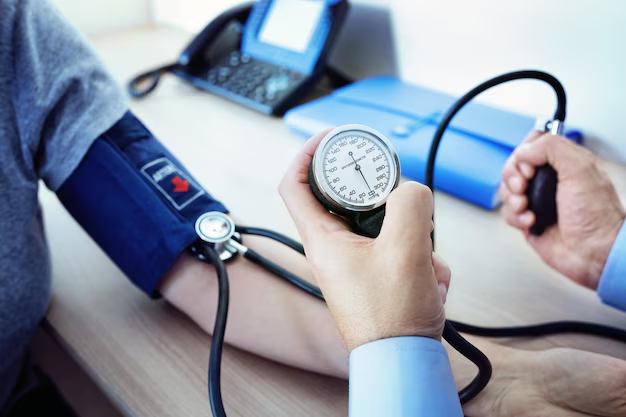Your Guide to What Are The Causes Of Hypertension
What You Get:
Free Guide
Free, helpful information about HyperTension FAQ and related What Are The Causes Of Hypertension topics.
Helpful Information
Get clear and easy-to-understand details about What Are The Causes Of Hypertension topics and resources.
Personalized Offers
Answer a few optional questions to receive offers or information related to HyperTension FAQ. The survey is optional and not required to access your free guide.
Understanding Hypertension: What Causes High Blood Pressure?
High blood pressure, or hypertension, is a common condition affecting millions worldwide. Often named the "silent killer" because it rarely has noticeable symptoms, hypertension can lead to serious health issues if left unchecked, such as heart disease and stroke. But what exactly causes hypertension, and why is it so prevalent?
Common Causes of Hypertension
1. Lifestyle Factors
Your daily habits can significantly influence your risk of developing hypertension. Poor diet, especially one high in sodium and low in essential nutrients, can lead to increased blood pressure. Additionally, lack of physical activity and excessive alcohol consumption are known contributors. Smoking damages blood vessels and increases the risk of hypertension as well.
2. Obesity
Carrying excess weight puts extra strain on your heart and blood vessels. Obesity is strongly associated with hypertension, as the heart has to work harder to pump blood throughout the body, leading to increased blood pressure.
3. Genetics and Family History
Hypertension often runs in families, suggesting a genetic component. If your parents or close relatives have high blood pressure, your risk may be higher.
4. Age and Gender
As people age, the likelihood of developing hypertension increases. Men are generally at higher risk earlier in life, but after menopause, women’s risk rises substantially.
5. Stress
Chronic stress can lead to a temporary increase in blood pressure. If stress-related habits like poor diet, alcohol, or tobacco use are introduced, they can contribute to the long-term risk.
6. Underlying Health Conditions
Certain health conditions, such as kidney disease, diabetes, and sleep apnea, can increase the risk of developing hypertension. These conditions either strain the body's systems directly or involve medications that may impact blood pressure.
Navigating the Path to Better Heart Health
Taking charge of your health is the first step toward managing hypertension. While lifestyle modifications are crucial, you may still find it challenging to tackle the financial burden associated with healthcare and wellness initiatives.
Financial support programs and educational opportunities can help alleviate this burden, offering valuable resources to those who strive to make heart-healthy changes. From government aid to various funds dedicated to healthcare improvements, these initiatives play a vital role in accessible healthcare for everyone.
- 🩺 Government Aid Programs: Many governments offer medical assistance programs that cover the cost of hypertension medications or treatments for those who qualify.
- 🍏 Nutritional Support: Some organizations provide access to affordable or even free nutritional counseling and cooking classes to learn heart-healthy meal preparation.
- 🏋️♂️ Fitness Opportunities: Community centers or health foundations may offer reduced-cost or complementary gym memberships and exercise classes.
- 💔 Debt Relief for Medical Expenses: Debt relief options, such as consolidations or grants, can ease the financial pressure of accumulated medical bills related to hypertension management.
- 🎓 Educational Grants: Scholarships and grants for students focusing on healthcare studies can foster better public health practices and innovation.
By understanding the causes of hypertension, taking preventive measures, and seeking available resources, you can significantly reduce health risks and enhance your quality of life. Identifying the broad spectrum of support options encourages a holistic approach to health, ensuring financial burdens don't stand in the way of effective hypertension management.
What You Get:
Free HyperTension FAQ Guide
Free, helpful information about What Are The Causes Of Hypertension and related resources.

Helpful Information
Get clear, easy-to-understand details about What Are The Causes Of Hypertension topics.

Optional Personalized Offers
Answer a few optional questions to see offers or information related to HyperTension FAQ. Participation is not required to get your free guide.


Discover More
- a 66 Year Old Female With a History Of Hypertension
- Are Eggs Bad For Hypertension
- Are Eggs Good For Hypertension
- Are Endocrine Disorders Causing Hypertension Rare
- Can Adderall Cause Hypertension
- Can Alcohol Cause Hypertension
- Can Allergies Cause Hypertension
- Can Anemci People Get Hypertension
- Can Anemia Cause Hypertension
- Can Antibiotics Cause Hypertension
